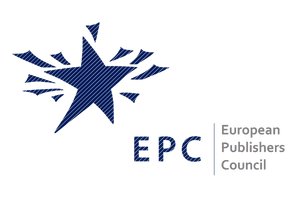The European Publishers Council (EPC) is a prominent high-level lobbying group established in 1991, comprising Chairmen and Chief Executives from leading European media corporations. Its primary mission is to protect freedom of expression in editorial and advertising content and to represent the business interests of its members, who span a diverse array of media sectors—including newspapers, magazines, books, journals, online databases, internet publishing, and, in many cases, private television and radio. The EPC is not a trade association but rather an exclusive collective of senior media executives, focused on shaping European legislation affecting the media and publishing industries.
EPC’s lobbying efforts are targeted at ensuring the sustainability and viability of journalistically-driven media and publishing companies in the European Union. The Council is deeply engaged in policy debates concerning the digital transformation of media, copyright, data protection, competition policy, eCommerce, broadcasting, media pluralism, net neutrality, internet security, and more. Its advocacy is rooted in the belief that a free and independent press underpins democracy and that media diversity and ethical standards are essential for a healthy public sphere.
The EPC has a long-standing presence in Brussels, actively engaging with EU legislators, the European Commission, and the European Parliament to influence key regulatory and strategic issues. The Council’s members have embraced digital innovation, transitioning from print to digital platforms and building diversified business models supported by subscriptions, advertising, and digital marketplaces. Through its lobbying, the EPC seeks to foster a regulatory environment that supports investment in journalism and entertainment, ensuring the future of independently funded media in Europe.
EPC’s activities are transparent and registered with the EU Transparency Register since September 2008. The organization has held numerous high-level meetings with EU officials and maintains a visible presence in policy discussions that shape the European media landscape. Its headquarters are in the United Kingdom, with an EU office in Brussels, Belgium


